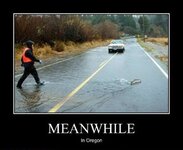Staff Member
Bronze Supporter
- Messages
- 4,217
- Reactions
- 5,051
Yeah, the stainless thing is curious, lots of people taking names at face value.
As for the lube 'compatibility' - It's normally a case of going from type to type. I don't mind that as i prefer the non petroleum based stuff, it's actually a little more effective as well as being kinder on the nose and skin
As for the lube 'compatibility' - It's normally a case of going from type to type. I don't mind that as i prefer the non petroleum based stuff, it's actually a little more effective as well as being kinder on the nose and skin












